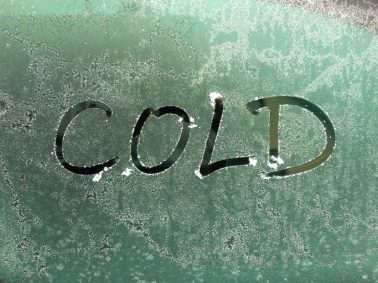
As the winter period comes to a close, and we start to consider turning off the central heating, Rebecca Nicholson’s article explores whether lowering your body temperature improves your health. Is it good to be cold?
Dunking yourself in cool water is a remedy so old that Hippocrates recommended it, and Charles Darwin famously underwent a regime of being “scrubbed with a rough towel in cold water for two or three minutes” to improve his ailing health. For present-day scientists, the fascination with the power of cold continues, with everything from a blast of icy water during a morning shower to walking topless in winter being studied as a possible quick-and-simple path to a healthier life.
A new report from the Leiden University Medical Centre in the Netherlands has linked global warming with a rise in type 2 diabetes, and numerous studies in the past few years have lent credence to the idea that artificial heat may be a contributing factor to obesity, as it has caused our metabolisms to slow down. The theory goes that of the two types of fat in the body (white and brown) brown fat burns calories, and there’s evidence to suggest that when you’re cold, brown fat is either produced, or activated. In our world of central heating and controlled environments, we simply aren’t cold often enough. So which of all the practical cooling tips may actually improve our health?
The theory: open a window at night.
Does it work? Possibly. It’s easier to nod off in a cold environment than it is in a warm one, as a drop in core temperature signals that it’s time to go to sleep. It may also aid weight loss by increasing brown fat activity. The former Nasa scientist Ray Cronise, whose area of interest is cold exposure, has said he sleeps without a blanket, even during winter.
The theory: Turn the central heating down.
Does it work? Again, if being colder stimulates brown fat, then it’s worth a try. There are also numerous arguments that our reliance on being warm is creating a “seasonless” existence, which we have not yet evolved into coping with, which is having a detrimental effect on our immune systems. Experts recommend keeping inside temperatures at between 12C and 18C, which has the added benefit of reducing our energy consumption.
The theory: Have a cold shower in the morning.
Does it work? The myth that rinsing your hair with cold water makes it shinier is enduring, even though it may not have much basis in fact. However, various studies have shown the health benefits of a cold shower in the morning. These include reduced stress, weight loss, and even increased productivity, as doing it is hard, and doing hard things first thing may make you procrastinate less.
The theory: Go swimming outdoors.
Does it work? Outdoor swimming has exploded in popularity in the last few years, thanks to reports of its magical properties. The cold shock can boost the immune system, improve mental health by stimulating endorphins, dopamine and serotonin, and reduce uric acid, which means it’s easier to cope with stress.
Don’t forget to follow us on Twitter, like us on Facebook, or connect with us on LinkedIn!

Be the first to comment